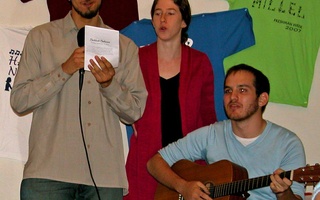Hundreds of people braved the cold weather Wednesday to hear a public address on national security by General Henry H. Shelton, chair of the Joint Chiefs of Staff.
The speech dealt with the competing roles of diplomacy and military action in American foreign policy. Shelton said the armed forces should be deployed to defend "vital or important national interests."
Questions of military intervention become more problematic when the military intervenes to defend humanitarian interests, he said, pointing in NATO's recent campaign to stop ethnic cleansing in Kosovo as an example.
Shelton defended NATO's actions in Kosovo but added that armed intervention is not always necessary in such cases.
"The military is a great hammer," he said, "but not every problem is a nail."
Shelton explained the extensive tests that policymakers use to avoid or minimize the unintended consequences of military intervention.
One such device is the "Dover Test," in which policymakers ask themselves whether the American public is prepared to see human beings, "America's best resource," returning "in caskets."
Shelton maintained that, despite the risks involved, military action often presents the most efficient way of saving lives. He cited rescue missions after Hurricane Andrew hit the southeastern region of the country in 1992 and the armed intervention to prevent ethnic cleansing in Rwanda as examples of these situations.
Read more in News
McCain Trounces Bush, Gore Edges Bradley in NH PrimaryRecommended Articles
-
Hunter to Swim In A.A.U. ContestThe National A.A.U. championships began in New Haven yesterday, but for Bruce Hunter--and just about everyone else--the important event won't
-
Devoted Basketball Team Fan, Donor Dies at 88Raymond P. Lavietes ’36, a Harvard basketball star and the namesake of Harvard’s basketball pavilion, died of lung cancer Sunday
-
 Law and Order: Special Harvard Unit
Law and Order: Special Harvard Unit -
 Students Celebrate Sukkat Salaam at Hillel
Students Celebrate Sukkat Salaam at Hillel -
Students, Union Call For Harvard to Divest from HEIFive workers at a hotel owned by HEI Hotels & Resorts—a corporation in which Harvard has invested—claim that they were unjustly fired after complaining about poor working conditions and cooperating in a California state investigation into the company.
-
Harvard Student Group Hosts Vigil for Troy DavisForty Harvard students gathered at 12:03 p.m. and again at 1:03 p.m. to join together in a moment of silence for Davis.













